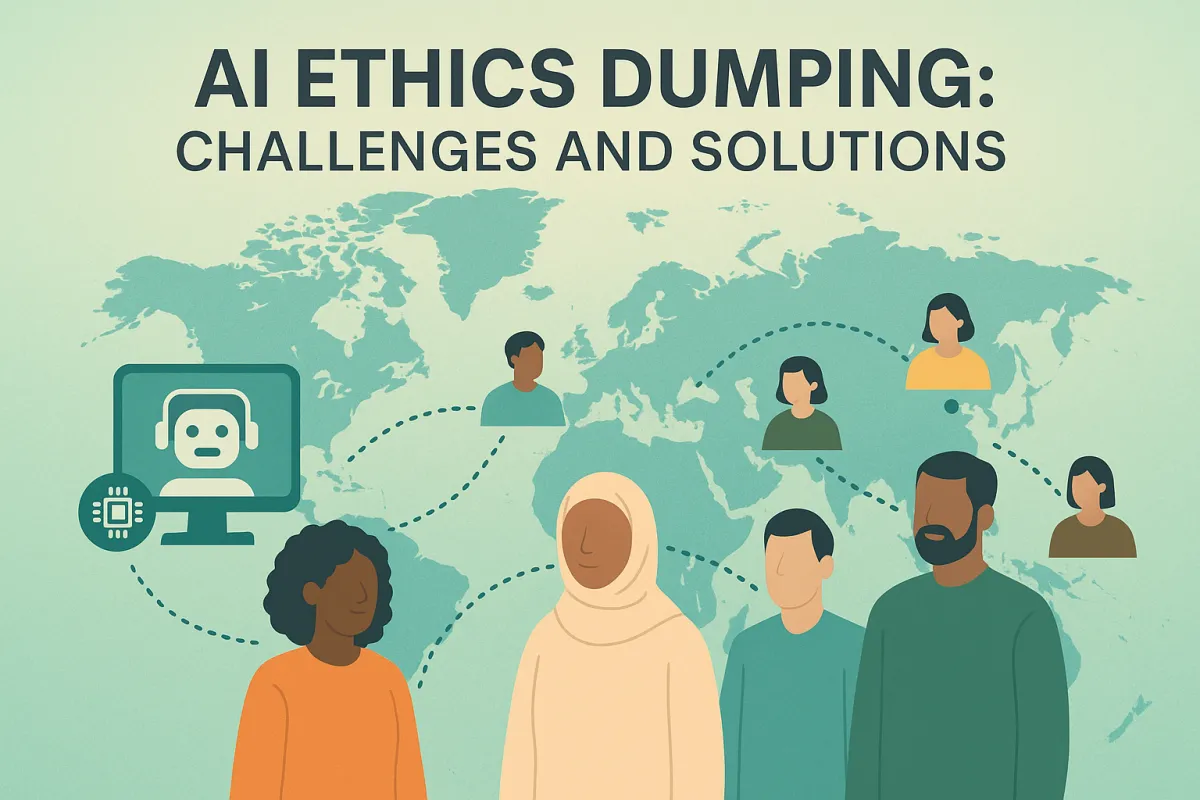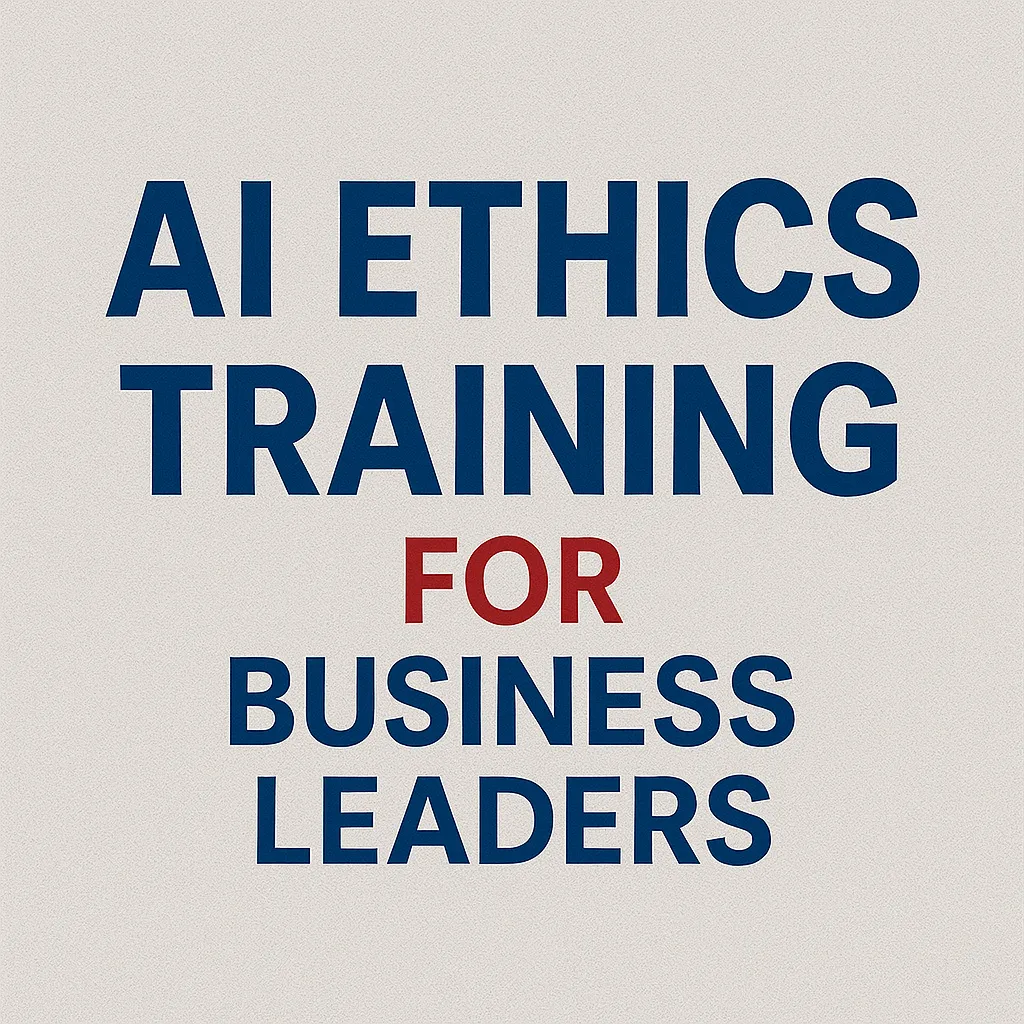Blog Post

AI Ethics Dumping: Challenges and Solutions
The Hidden Cost of AI Innovation
Introduction:
Artificial Intelligence (AI) has quickly woven itself into the fabric of modern life, shaping everything from healthcare and education to criminal justice and employment. Yet, amid these advancements lies a concerning practice known as AI ethics dumping—the outsourcing of ethical risks and burdens onto the very communities least equipped to bear them. Understanding and addressing this phenomenon is critical if we are to create technologies that uplift rather than marginalize.
Understanding AI Ethics Dumping
At its core, AI ethics dumping refers to the practice where developers and policymakers transfer the ethical, societal, and technological risks of AI systems onto vulnerable groups. Often, these marginalized communities are left to navigate the challenges of flawed or biased AI tools without adequate support, deepening existing social inequalities.
This issue is especially alarming given AI’s expanding role in life-altering decisions like job recruitment, criminal sentencing, healthcare diagnostics, and social services distribution. Without proper intervention, AI ethics dumping risks entrenching systemic injustices within digital frameworks.
A Historical Context: Patterns of Discrimination
The roots of bias in AI are neither random nor recent. Historical patterns of discrimination are often baked into algorithmic decision-making processes, sometimes unintentionally reflecting decades of societal inequalities. For instance:
Risk assessment tools used in the U.S. criminal justice system have been found to inaccurately label Black defendants as high-risk more frequently than white defendants (ProPublica, 2016).
Hiring algorithms have systematically discriminated against older applicants and women, as demonstrated by lawsuits against tech firms like iTutorGroup in 2023.
Such examples underscore the urgency for AI systems to move beyond historical biases and foster equitable futures.
Key Ethical Challenges in AI Development
1. Algorithmic Bias
Algorithmic decision-making often mirrors societal prejudices, disproportionately harming marginalized groups in areas like policing, healthcare, and finance.
2. Erosion of Accountability
Opaque AI systems allow developers to sidestep responsibility for adverse outcomes, leaving users and communities to bear the consequences alone.
3. Disconnection from Local Contexts
Many AI solutions are designed without consulting the communities they affect, leading to misaligned priorities and ineffective outcomes.
4. Marginalization of Vulnerable Communities
The most at-risk groups are often excluded from the conversation, reinforcing cycles of disenfranchisement and inequality.
Building a Path Toward Ethical AI
Addressing AI ethics dumping requires a multi-faceted approach rooted in inclusivity, fairness, and responsibility:
Empowering Affected Communities
Stakeholder engagement must start at the earliest stages of AI development. Involving diverse voices ensures that technologies are contextually appropriate and ethically sound.
Strengthening Regulation and Governance
Robust regulatory frameworks are essential. Updating nondiscrimination laws, establishing independent oversight bodies, and incentivizing responsible innovation are critical steps toward accountable AI.
Promoting Community-Centric Approaches
Initiatives like civic partnerships, community co-design workshops, and algorithmic literacy programs empower users and rebalance power dynamics between technology developers and society.
Implementing Ethics-by-Design Principles
Ethical considerations must be integrated into the design phase—not as an afterthought, but as a guiding principle. Developers must internalize responsibility, avoiding the temptation of superficial or tokenistic ethical practices.
Future Directions: What Needs to Change
To combat ethics dumping effectively, we must embrace:
A human-centered AI ethos that prioritizes fairness, dignity, and societal benefit.
International and interdisciplinary collaboration to ensure AI governance frameworks are agile, inclusive, and globally informed.
Public education and algorithmic literacy campaigns to equip communities with the tools to critically engage with AI technologies.
Continuous research and proactive ethical innovation to anticipate emerging challenges before harm is done.
Only through collective effort can we ensure that AI becomes a force for empowerment rather than oppression.
Conclusion: Toward a More Equitable AI Future
AI ethics dumping is a silent but powerful threat to technological justice. As AI systems shape more aspects of daily life, developers, policymakers, and civil society must work together to ensure that ethical burdens are not unfairly shifted onto those least able to bear them.
By embracing inclusive design, regulatory accountability, stakeholder empowerment, and proactive ethical engagement, we can build a future where technology serves all of humanity—not just a privileged few.
The challenge is great, but the opportunity is even greater. Now is the time to act.









